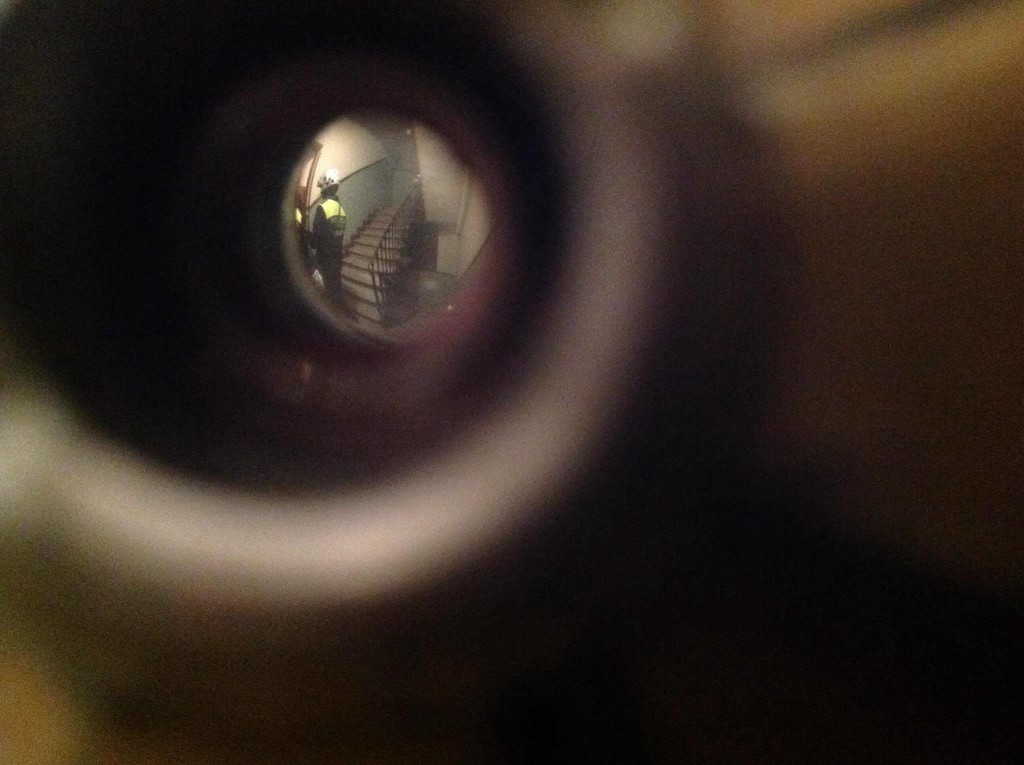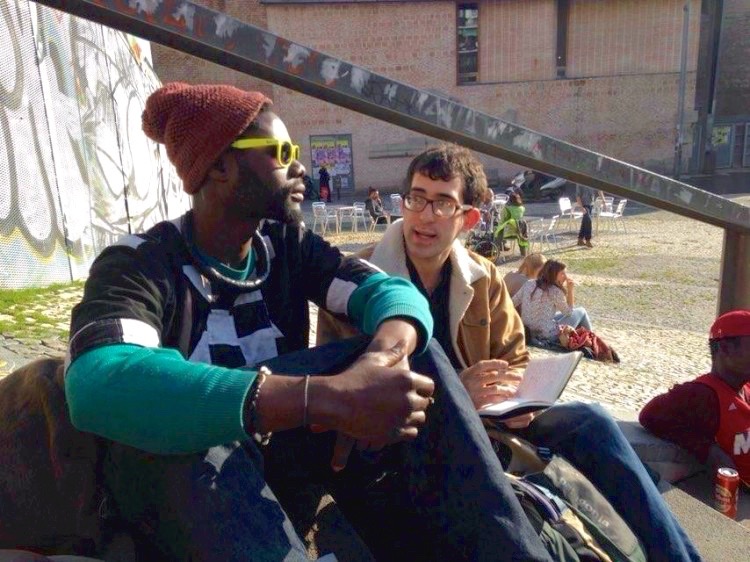Courage on the corner: a window into the life of a Senegalese migrant and Baye Fall culture
Barrio Lavapiés can be personified by its many smells: the Indian curries and scents escaping from the ethnic restaurants and the grit of the infrequently cleaned streets. Least subtle of all is the lingering scent of weed and hash smoked by entrepreneurial gentlemen on the corner, who actively solicit the business of passersby. People of all ages congregate and botellón when the weather allows it. There is a strong sense of community here among the international and local residents. In recent years the neighborhood of Lavapiés has become trendy and has been slowly undergoing the inevitable gentrification process.
I was moved by a Vice documentary titled “Storming Spain’s Razor-Wire Fence” that depicts the odyssey undertaken by many African migrants in their attempts to enter mainland Spain via the border shared between Morocco & Ceuta y Melilla. The documentary provided a brutal window into their journeys but didn’t go into any detail as to how those who had succeeded would go on to assimilate. My curiosity was piqued as to potential stories that could be shared by my neighbors in Lavapies if they were granted an adequate platform to do so.
My close friend Kam “El Profesoul” accompanied me as my barrio ambassador; together we scoured the block, my notebook in hand as we searched for subjects to interview. As an active musician and long-term resident of the neighborhood, Kam has befriended many members of the African community. One such friend of Kam’s was responsive to my interview request and invited us to join him and his crew on the smoky stairs where they were strategically perched. Moha, a bearded African with dignified posture, kept his eyes hidden behind yellow plastic sunglasses. In the background was Zikr music from Senegal playing softly. Moha and his companions identify themselves as Baye Falls, a sub-group of the Mouride Brotherhood that is prominent in Senegal. The ensuing conversation took place in Spanish with my notes taken in English.
My interview with Moha
Where are you from? Do you feel at home here?
I am from Senegal and I am grateful to be a documented resident of Spain for five years. My family moved here before I did and I was fortunately granted permission to join them. Many of my friends were separated from their families during their journeys or after arriving here because without legal papers they cannot leave Spain. Every resource of value was taken from our Africa and we come here to have a better life. We’ve made this barrio our home. We bring our music, our food our culture and our love.
What do you want members of my community to know about yours?
Baye Fall culture is about respect, love and valor. We don’t steal. We love our neighbors. If we see one of our own misbehave, we confront them and put them on the right path. (During our conversation one of Moha’s peers catcalled a passerby and was swiftly berated by the group, exemplifying these principles.) We believe in nonviolence and love. We’re open to outsiders. See him? My white friend below, we’re teaching him Baye Fall. We don’t fight, when we do it’s not with the world but within ourselves. “Su lucha es suya misma”
What is a typical day like on the corner? What qualities have helped you survive here?
“Si no trapicheos, no comes” – If we don’t hustle, we can’t eat.
Many are obligated to stay in the game, whether or not it’s what we want. We meet a lot of people this way. On a typical day we can work the corners and do our parts in peace and there is no problem. Sometimes we are confronted by the police. I have seen many friends detained and disappeared for not having their legal documents. Without my documents I would not have the freedom and peace that I am blessed with now. To avoid police, it helps to change our clothes several times throughout the day. Without papers, one must find alternatives to contracted work. Many of us have mastered a trade or art form. We’re painters, drummers, singers, sculptors, woodworkers. We are many things. We gather on Sundays to teach our skills to each other and anyone else who seeks it.

The police interrogating my African neighbors in a previous Lavapies apartment
What can be done to improve the assimilation process in the future?
We must be reminded that we are all equal. That we can forget our differences. Opportunities that we create ourselves cannot be taken away from us. We must not fall weak and be foolish. We must be able to ask for help when we need it and then give it back.
What is your happiest memory in the barrio?
There is a yearly grand party of Baye Falls. The exact date depends on the lunar cycle; this past year it was in November. People come from all over to celebrate and dance in the streets. It is beautiful.
How do you feel that Lavapiés is now becoming a “trendy” neighborhood? Are you concerned that it will become gentrified and lose its charm and essence?
The Spanish youth that live in the barrio are not affecting it in a negative way. The students and artists are innovative and have many ideas that could work. They have clear hearts and have Baye Fall in them even if they don’t know it. Lavapiés is the heart of Madrid, let’s not forget that.
Please share any comments you may have, and stay tuned – Dan will be providing us with more special articles like this one over the coming months.
You may also like:



